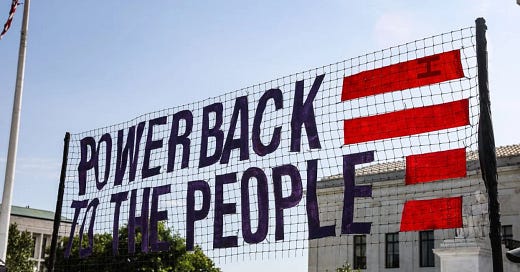Chevron Attacked the Very Idea of America
Representative Government vs. the Priesthood of Experts
by Rod D. Martin
July 4, 2024
The Supreme Court’s overturning of Chevron was an early Independence Day gift. Chevron stood for an imperial bureaucracy, neither responsible to the people nor accountable to anyone, a priesthood of experts pursuing what Thomas Sowell called “the vision of the anointed”, interpreting, adjudicating, and above all, making the laws we must live by, however they saw fit.
Last week, in their Loper Bright and Jarkesy rulings, the Court overturned that half-century travesty, partly upending the statist technocratic order and, at least to a degree, replacing it with the Constitutional vision of the Founders.
James Madison would be proud.
The Administrative State: Subject-Matter Dictatorships
To understand the principles at stake, we first must grasp the radical shift in governance represented by the advent of the administrative state a century ago.
The Founding Fathers established responsible government: elected leadership that must regularly stand accountable for its actions and their effects. Their Revolution explicitly repudiated the idea of lawmaking and enforcement by far-away elites, in favor of that government which was closest to the people. They recognized the benefit of continent-wide (though not unelected or transoceanic) policy on a handful of key issues; but to achieve that, they created multiple competing elected bodies to check each other’s hubris, and they wrote a Constitution that restricted their new government to only a short list of subjects.
Why did they do this? Because they had experienced the tyranny born of unrestricted arrogance. And while they knew they couldn’t change the nature of man, they could use competition among men to restrain their more venal and predatory impulses.




